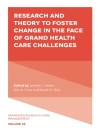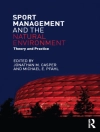The conventional macroeconomic theory of the late twentieth and early twenty-first century, based on the assumption that the working of complex monetary economy could be analysed on the same principles as those of barter exchange, has demonstrably failed. This book provides a thorough rethinking of the nature of a monetary economy. It builds upon a complete theory of the domestic and international monetary macro-economy, and of macroeconomic policy for the modern age. Central to the analysis is the idea that a successful market economy requires an endogenous supply of money via the banking system. Therefore to achieve macroeconomic stability, the book proposes the targeting of real interest rates under a regime of flexible exchange rates or ‘fixed but adjustable exchange rates’ as the main goal of monetary policy, along with a range of innovative fiscal and trade policies to promote economic growth, and thereby achieve full employment and a fair distribution of income.
Contents:
- An Introduction to Money
- Money, Capitalism, and Enterprise
- A Teachable Macroeconomic Model of ‘Modern Capitalism’ (aka ‘The Method of Enterprise’)
- Comparing Textbook Macroeconomics and the Alternative Monetary Model (AMM)
- The International Economy, the Balance of Payments, and Exchange Rates
- Interest Rates, Inflation, and Economic Instability
- Interest Rates and Income Distribution
- Numerical Methods and Time Series Econometrics in Monetary Macroeconomics
Readership: Academics, practitioners and policy-makers interested in the fields of macroeconomics, monetary economics and political economy; graduate and undergraduate students, and general public interested in above topics.
John Smithin is Professor Emeritus of Economics and Senior Scholar at York University, Toronto, Canada, and Executive Co-Director and Fellow of the Aurora Philosophy Institute. He previously held teaching appointments at the University of Calgary, and Lanchester Polytechnic at Coventry (now Coventry University) in England. In the academic year 1995–96 he was elected Bye Fellow at Robinson College, Cambridge. He holds a Ph D and an MA from Mc Master University and a BA (Hons) from the City of London Polytechnic (now London Metropolitan University). His research interests are in the fields of macroeconomic policy, monetary theory, and the philosophy of money and finance. He has authored and edited several titles; Rethinking the Theory of Money, Credit, and Macroeconomics (2018), Essays in the Fundamental Theory of Monetary Economics and Macroeconomic (2013), Money, Enterprise and Income Distribution (2009), Fundamentals of Economics for Business (2009, 2006), Controversies in Monetary Economics (2003, 1994), What is Money? (2000), Macroeconomic Policy and the Future of Capitalism (1996), Macroeconomics after Thatcher and Reagan (1990), and Keynes and Public Policy After Fifty Years (1988).












